- Home
- Richard Adams
Daniel Page 18
Daniel Read online
Page 18
At that night’s meeting we met with hostility from a group in the audience, who opposed Mr. Clarkson as soon as he had finished his address. The slave trade, said their spokesman, was both economically necessary and humane. The slaves were well-treated. There was no improper severity. The trade was being attacked by mere busybodies, who knew nothing about it. This was philanthropy gone mad. Abolition would mean that honest merchants and ship-owners would be ruined. The French would step in and take away our trade. Worse, Abolition would be followed by Negro risings in the West Indies. Inevitably there would be bloody massacres of white people.
Mr. Clarkson replied that he had never denied that Abolition would involve a loss of trade. So it should. The termination of every evil usually brought about a loss to those who were making money out of it. Making money through the slave trade was morally unjustifiable. Let them wait and hear what Mr. Daniel had to tell them; Mr. Daniel who had experienced at first hand what they had never even tried to see for themselves.
It was at this meeting in Reading that the knowledge began to dawn upon me that my contribution to the cause of Abolition was unique and unanswerable. It constituted a complete reply against any contention that the trade was not based on deliberate cruelty, that the slaves were not ill-treated and that we were misrepresenting the truth. What I had seen, what I spoke about, had the power to defeat all attacks on that particular aspect of our case – the issue of inhumanity. Others, wiser and more knowledgeable than I, were better qualified to contend about the sanctity of property, of diseases left untreated, of early mortality from overwork and exhaustion, and of the overriding importance of Christian principles. But on the matter of cruelty being essential to the trade, of the deliberate infliction of suffering, the mere recounting of my experience was enough to defeat all attempts to whitewash the hideous truth. That night, as I spoke about the whips on the beach and the slaves thrown alive into the sea, I saw our opponents put out of countenance, and when I had finished they made no attempt to resume their attack. One man alone demanded to know whether what I had said was the truth, to which I replied, “Do you think I could have invented it?”
Upon our return next day, Mr. Clarkson told me that he particularly wished me not to leave London for the time being. He wanted me to stay with him. I agreed at once and he thereupon sent a letter by his servant to Mr. Winter, asking him to let the man have my few things to bring back with him. Next day, as soon as we had finished breakfast, he told me what he had in mind.
“You’ve done very well so far, Daniel,” he said. “I want you, if you will, to remain with me and join me in the work. As a black man you’re invaluable. But I want to help you to become still better. You’re a good speaker but you’d agree, wouldn’t you? that at present you’re somewhat handicapped by lacking a wide knowledge of words.”
“Yes, sir,” I answered, “I know that all too well.”
“It’s a handicap we can overcome,” he said. “You can improve not merely your vocabulary, but your whole ability with words – your style, one might say. I’d like you to live here and put as much time as you can into reading. I’ll see you get books that interest you — novels, poetry, scientific stuff, whatever you like, if only you’re ready to work seriously.” He gave me one of his rare smiles. “You might even enjoy it – who knows?”
This was how I came under the guidance of Mr. Clarkson, received an education in English and became literate. He was certainly exacting – very much so — but since we shared one and the same purpose, we got along pretty well. I was careful to give as little trouble in the house as possible, and his servants seemed not to resent me. Having transferred my bank account from Bristol, I had sufficient money for my simple needs.
I came to know several of Mr. Clarkson’s friends, most of them principal figures in the cause of Abolition. A large number were Quakers. Among them was Mr. James Phillips, who became a good friend to me, introducing me to Richardson’s novels and the poetry of Pope and Dryden.
There came a day when Mr. Clarkson told me that he wished me to accompany him to an informal meeting of Abolitionists, to meet a Member of Parliament named William Wilberforce. This Mr. Wilberforce had agreed to pursue the cause of Abolition in the House of Commons.
“He’s studying the whole business very thoroughly,” said Mr. Clarkson. “He’s on good terms with a lot of our Quaker friends. There’ll be several people there today who are all looking forward to him speaking about Abolition in Parliament. He’s a close friend of young Mr. Pitt, the Prime Minister. Apparently Pitt himself is very much against the Slave Trade.”
This was how I met William Wilberforce, the Abolitionist hero, the slaves’ Knight Errant, the indefatigable Member of Parliament against the Slave Trade. When we arrived, a number of gentlemen were present, several of whom I had already met. They were gathered round Mr. Wilberforce, whose appearance and manner were a surprise to me. He was by no means a commanding figure. He was slightly built and short of stature, and his carriage and movements had a certain singularity; not bizarre but certainly unusual. I thought he looked too sensitive to be a fighting leader and far from robust. However, he had a handsome face, and his manner as he talked was genial and warm. He was standing near a window, and he suddenly broke off what he was saying and looked out in silence for some moments. “A goldfinch,” he explained smilingly to his hearers. “Such pretty birds. At this time of year they’re attracted by the seeds left on the plants, you know. But we must continue our discussion, mustn’t we? Sorry for the interruption.”
Mr. Clarkson introduced me to him, saying that my colour, and experience of the horrors of the Slave Trade at first hand, made me a valuable speaker at public meetings. Mr. Wilberforce shook hands and said he was happy to meet me, and we conversed together for several minutes. His personal attention came as a most pleasant surprise.
It was not, (so Mr. Clarkson told me), at any informal meeting of sympathisers like this one that Mr. Wilberforce had consented to introduce the matter of the Slave Trade in Parliament. First, he had had a long talk with Mr. Pitt, the Prime Minister. Then, soon afterwards, at a dinner party of several distinguished persons, a certain Mr. Bennet Langton had obtained his formal agreement. Everyone felt that this represented a marked step forward.
Hitherto, I had supposed that once we had established throughout the country the conviction, among the majority, that the slave trade was unjustifiable and evil, it would be abolished by order of the Government. Mr. Wilberforce, with a speech in Parliament, would establish an overwhelming case and Mr. Pitt, as Prime Minister, would take the necessary steps to bring the trade to an end.
I asked Mr. Clarkson how soon, once Mr. Wilberforce had spoken, Abolition would be declared.
“You mean,” he said, “whether he’ll be able to introduce a Bill, don’t you?”
“I’m afraid I don’t quite understand, sir. Once Mr. Wilberforce has spoken, won’t Mr, Pitt be able to declare the Trade abolished?”
“Well, don’t be silly, Daniel. Of course he won’t.”
“Then the King will do it? The supreme power?”
“The King’s mad.”
I stared, wondering whether I was mad myself.
Patiently, Mr. Clarkson explained the constitution of Parliament, the Commons and the Lords; legislation, Bills and Acts. “We’ve hardly started yet, Daniel, to bring about Abolition. Perhaps we’ll achieve it in five or six years. Or perhaps not. The House of Lords will undoubtedly reject Wilberforce’s Bill. That’s if he can manage to introduce a Bill and get it through the House of Commons.”
“But I thought nearly everybody wanted it.”
“You thought wrong, then.”
Knowing how impatient and dismissive Mr. Clarkson could be, I desisted from further questions.
Shortly afterwards, Mr. Clarkson told me that he and I would soon be off to Bristol and then to Liverpool by way of Chester. I knew that most of our Abolitionist friends thought of Liverpool as the lions’ den and I felt nervo
us at the idea of actually going there. A few days later, I was approached by two members of the London Abolition Committee. I felt embarrassed when they told me that they did not want Mr. Clarkson to know of our meeting. However, I thought I had better hear what they had to say.
This was nothing less than to express the hope that I might be able to dissuade Mr. Clarkson from making our intended journey to Liverpool. The Committee, they told me, had misgivings about his fitness for the task. While his zeal and activity were highly regarded, the Committee feared that he was lacking in tact and prudence. He was likely to give offence, and was not the right man to collect evidence and present it to Ministers and Members of Parliament: that called for a cooler head. I told them that my relationship to Mr. Clarkson was that of an obedient subordinate and that I hadn’t got the influence over him that they were looking for. Soon afterwards, I learned that the Committee had decided to raise no objection to our visiting Liverpool, but had stressed to Mr. Clarkson the need for discretion.
I remember Mr. Clarkson telling me what he meant to achieve in Liverpool. We were walking on the city walls of Chester. It was a sunny, cloudless day in January.
“You know, of course, Daniel,” said Mr. Clarkson, “that Liverpool is by far the biggest slave-trading port in England. Do you know how many slave-ships sailed from Liverpool to West Africa last year? Sixty-one, that’s how many. There were eighteen from Bristol and fifteen from London. And the Liverpool ships carried more slaves per ton than any of the Bristol or London ships.”
“How did you manage to get those figures, sir?” I asked.
“By persistent enquiry,” he replied. “But I have my contacts as well. I’m in no doubt the figures are correct.”
After a little, he went on “But what I’m sure you couldn’t even guess, Daniel, is that there are a number of educated, influential men in Liverpool who are in favour of Abolition.”
He paused. ‘“You don’t believe me?”
“Oh, yes, sir, I believe you. But what I’m wondering is how these men can dare to speak out.”
“They can’t, really,” he answered. “Not in Liverpool. That’s to say they can’t speak out forcefully, as you and I do. But all the same, they make their views known. We’re going to meet them and see whether we can’t give them some help.”
“Do you know any of them by name, sir?”
“Yes, as it happens, I do,” said he. “I’ve got four names: Rathbone, Roscoe, Currie and Rushton. We’ll try Rathbone for a start. I know that Mr. Barton, our Quaker friend in London, has been in touch with him for some time. Roscoe and the people around him have been talking of setting up a Liverpool Abolition Society. But that’s all nonsense. Of course they daren’t really attempt it; but where these fellows do come in handy is that they can give us a lot of detailed information about the African trade. Not to mention the muster rolls of a lot of the Liverpool slave-ships.”
As soon as we had settled in to our lodgings at The King’s Arms, (not a single Liverpudlian dared to offer us hospitality), we called on Mr. Rathbone.
There turned out to be two Mr. Rathbones. The elder, William, a Quaker, was in his seventies, a well-to-do timber merchant. This put him in a self-contradictory position as an Abolitionist, since for years past he had been supplying timber to the African ships of Liverpool. Lately, however, he had been gradually moving out of this business, and developing interests in West Indian and Baltic trades instead. I took to him immediately. He had a quick, shrewd intellect, and was quite without self-importance or vanity. He treated us courteously. He was, I think, the oldest member of the Liverpool Abolitionist group nicknamed “the Saints”. Although the Saints had never got further than talking about setting up an Abolitionist society and although they exercised virtually no political influence as a group, they were respected for their views and had never been harassed or ostracised.
William’s son, who was about thirty at the time of our visit, was altogether different, an aggressive, outspoken man who enjoyed a good scrap; not only an abolitionist but a radical supporter of free trade and universal suffrage. Not unexpectedly, he had quite a few enemies, but he was the sort of man who thrives on friction.
The elder Mr. Rathbone introduced us to Mr, Roscoe, the most well-known and influential of the Liverpool Abolitionist sympathisers. For me, Mr. Roscoe (whom I guessed to be about 35) turned out to be something of a disappointment. I had been expecting a fervid, all-out abolitionist. Yet on the contrary, I soon realised that abolition wasn’t Mr. Roscoe’s principal interest, although he had recently done some useful work by writing antislavery pamphlets, which the London Committee thought well of and were going to publish. He was also, as he told us, the author of a good deal of poetry, including a long poem entitled The Wrongs of Africa. What he really wanted was to become famous as a poet, and to do him justice some of his poetry seemed pretty good to me. (Not that I could consider myself much of a judge.)
It was plain that he was also very much a man of business, with a sharp eye for profit. So he too was in a self-contradictory position, for on the one hand he was calling himself an abolitionist, while on the other he certainly wouldn’t do anything to diminish the prosperity of Liverpool, upon which he depended for his livelihood.
Although I had these reservations about his real value to us, in fairness I ought to add that many educated Liverpudlians admired what they considered his moral fearlessness and intellectual superiority. To my way of thinking, however, he wasn’t half fearless enough. “Run with the hare and hunt with the hounds” just about summed him up.
That evening at Mr. Roscoe’s, we also became acquainted with two other Abolitionists, Doctor James Currie and Mr. Edward Rushton. Dr. Currie, a Scotchman from Dumfries, was about my own age, and a comparative newcomer to Liverpool. When still very young, he had emigrated to America and become apprenticed to a Virginian merchant. Upon the outbreak of the War of Independence, however, he had managed to get to the West Indies and thence back home to Scotland. He then studied medicine at Edinburgh and, having qualified, came to Liverpool, where he was successful in gaining an appointment as physician at the Infirmary. Mr. Clarkson and I both reckoned him the best intellect in the Roscoe circle. (Our judgement was confirmed when, about four years after our visit, he was elected a Fellow of the Royal Society.) I found him stiff and unaccommodating: and I was not altogether surprised to hear, later, that he had become subject to fits of depression. It was hard enough for the members of Roscoe’s circle to penetrate his reserve, so there was no chance whatever for a young black man from London.
Wasn’t there even one of them for whom you could feel some warmth and friendliness, the reader may ask? Yes, indeed there was. From the time of that first visit, nearly thirty years ago, Ted Rushton has remained one of my closest friends. When I go up to Liverpool nowadays it is to see Ted. During that visit, both Mr. Clarkson and I sat and talked with him on many afternoons and evenings.
Ted, who was also about my own age, had become, at sixteen, second mate on an African slave-ship. While sailing in African waters, he befriended a black slave by the name of Quamina. One day, when Quamina and he were carrying slaves from a beach to Ted’s ship, their boat overturned in a rough sea. Despite the strong tide that was running, Quamina managed to grab a barrel, which kept him afloat. But then, seeing Ted struggling desperately, he let go of it and pushed it within Ted’s reach, intentionally sacrificing his own life to save Ted’s. Ted saw him waving farewell as he was swept away and drawn under.
Some months later, while Ted was still serving with the same ship, ophthalmia broke out among the slaves in the hold. Not one of the ship’s officers would go down there except Ted, who remained below and did all he could for the wretched victims. By the time they got to the West Indies, he was blind. Somehow he managed to get back to Liverpool, penniless and on the verge of starvation.
For several years afterwards, he lived in penury.
Never forgetting Quamina, he became a committed opponent of th
e slave trade and, with the help of friends, expressed his views forthrightly.
For a time, he was actually editor of the Liverpool Herald. But an outspoken article about the press gang, which came to the attention of the Liverpool Corporation, cost him the job. However, he continued to speak out and to make no secret of his beliefs. It was only his blindness that kept him out of more trouble. He was the sole Liverpool Abolitionist who had had direct experience of the Slave Trade, and this gave his writing authenticity and a force and sharpness lacking in the articles of Roscoe and Currie. Although Mr. Clarkson obtained a great deal of valuable material from him, we never managed to persuade him to come to London and testify.
Although, as our visit continued, Mr. Roscoe and his friends did not show themselves particularly helpful, Mr. Clarkson was undaunted; he told me that he thought he would get all the information he required in Liverpool. At The King’s Arms we were able to meet and talk to any number of seamen and captains who were “regulars” of the place. The steady flow of seamen coming off the slave-ships were ready enough to talk. What they would not do was give us the names of the captains and sailors whom they were criticising. (“Get your bloody windows smashed, ’ouses pulled down,” said one of them to me.)
One day, displayed in a shop window in the centre of the city, we saw a set of tools for constraining slaves: handcuffs, shackles, thumbscrews, mouth-openers and other instruments of torture. Mr. Clarkson bought a complete set – valuable evidence to take back to London. “Do you think we might try them on the House of Lords?” he asked me.
It troubled me – though of course I said nothing – that the anxiety of the London Committee about the suitability of Mr. Clarkson was only too surely confirmed. He made plenty of enemies among the respected merchants of the city. One day, for instance, when a certain Mr. Chaffers, a member of the Borough Council and a former slave-ship captain, had introduced us to one Mr. Ambrose Lace, a wealthy African and West Indian merchant, Mr, Clarkson accused him of having been “up to the neck”, as he put it, in the notorious massacre of blacks at Calabar, twenty years before. He as good as called him a dirty slaver. Mr. Lace made no reply, but walked out in haughty silence. I thought this particularly unfortunate, because hitherto, as I learned later, most of the merchants had not supposed that we were collecting evidence against them, or that we were committed abolitionists.

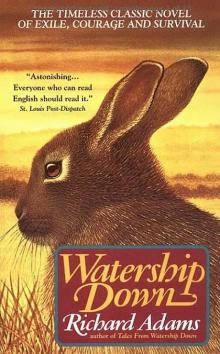 Watership Down
Watership Down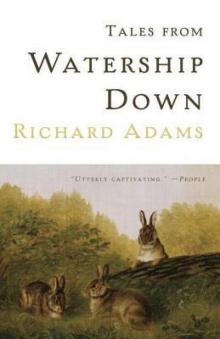 Tales From Watership Down
Tales From Watership Down Maia
Maia The Plague Dogs
The Plague Dogs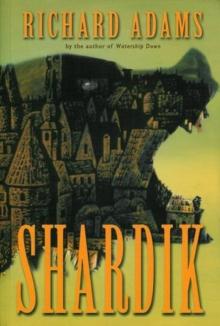 Shardik
Shardik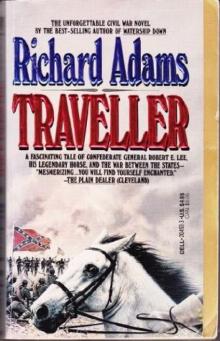 Traveller
Traveller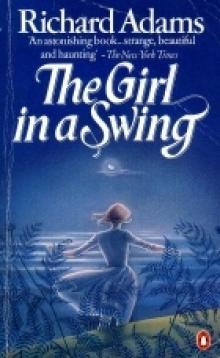 The Girl in a Swing
The Girl in a Swing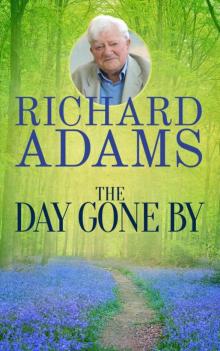 The Day Gone By
The Day Gone By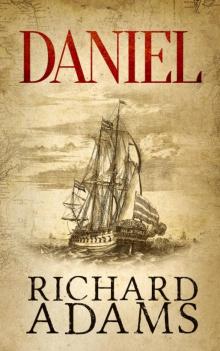 Daniel
Daniel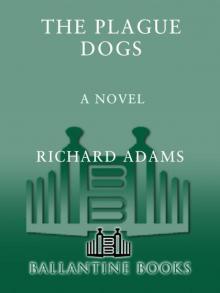 The Plague Dogs: A Novel
The Plague Dogs: A Novel